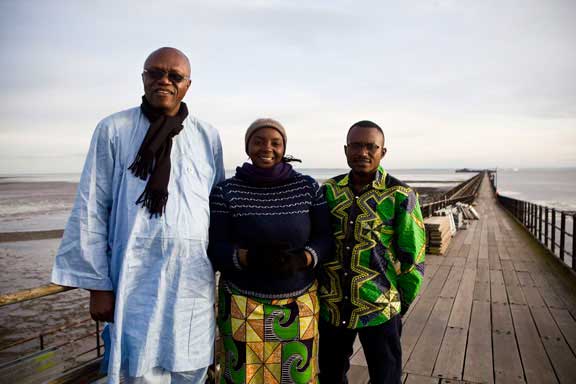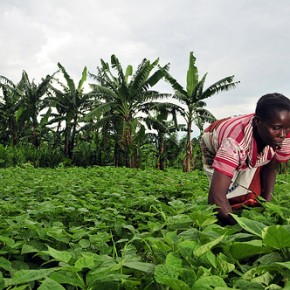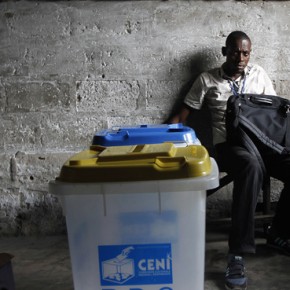Source: WWF.
People affected by illegal logging in the Democratic Republic of Congo have told UK politicians how the wood we buy here affects lives in central Africa. They’ve also visited high-profile sites like the Olympic Park and Southend pier to see sustainable timber being put to good use.

Three ‘forest witnesses’ from the Democratic Republic of Congo (DRC) – Louise Nyavughoye, Dieudonné Makaya and François Makoloh – have been in the UK representing central African communities who rely on forests for their livelihoods.
The Congo basin is one of the world’s last great forest regions, and home to species such as gorillas and elephants. It’s being seriously threatened by illegal logging. WWF works in DRC, one of the poorest countries in the world, to improve living conditions for communities and to keep the forest standing.
We took the three DRC visitors to the London Olympics site in Stratford, where they saw sustainable timber in use. They were pleased to find out from sustainability staff there, and Lathams timber traders, how efforts are being made in the UK to make sure the wood we buy is responsibly sourced, and helps protect forests and local communities in the Congo basin.
The three visitors also braved the cold sea air at Southend in Essex, where the world’s longest pier was rebuilt in 2010 using FSC-certified Ekki wood from Congo basin forests.
The following day they took part in a lively debate with MPs, businesses, local councils and NGOs at Lambeth Palace in London, focusing on the devastating impacts illegal logging can have on forests, people and wildlife, and the benefits of responsibly managed forests.
They heard from Caroline Lucas MP about how the EU needs to go further than the new timber regulation and make sure the timber we buy is sustainable, not just legal.
Louise Nyavughoye – who works with indigenous pygmy tribes whose survival is threatened by illegal logging – talked to MPs about the need for local communities in DRC to understand their rights and to benefit from logging, and how WWF is supporting better engagement between the companies and communities.
Dieudonné Makaya – who helps manage a sustainable forest concession in DRC – talked about how efforts are being made by his logging company, working with WWF locally, to manage the forest more responsibly. It means better living and safety standards for workers, as well as respecting wildlife and supporting local communities.
Gaining FSC certification is an important part of this and Dieudonné’s company hope to become accredited soon. FSC standards require, for example, that companies carefully select the trees to fell, to avoid unnecessary damage to surrounding trees, and ensure benefits go to local communities.
WWF forest officer François Makoloh’s main message to politicians was about how crucial it is that consumers and government in the UK show support for sustainable, certified timber.
Background to the forest witness visit
Our recent ‘Barometer’ report found that most EU countries are not doing enough to stem the flow of illegal and unsustainable timber or regulating its sale, despite the upcoming introduction of legislation to halt its import.
A new EU law in March 2013 will mean those supplying timber to the EU market will have to show it is legal. By then the UK government needs to ensure that key legislation is in place to exclude illegal timber. Currently, the UK is the third highest importer of products made from illegal timber in Europe, after Germany and Italy. We import enough illegal timber to fill 115 Royal Albert Halls.
The ‘forest witness’ visit is part of our What Wood You Choose? campaign, which is about raising awareness of the impacts of the UK’s wood and paper consumption on communities and environments in timber-producing developing countries.
Everyone in the UK can help by ensuring the timber products we buy are FSC-certified. Choosing FSC-certified wood and paper products, from furniture to tissues, is the best way to ensure the timber has been harvested legally and with respect for forests, people and wildlife.




